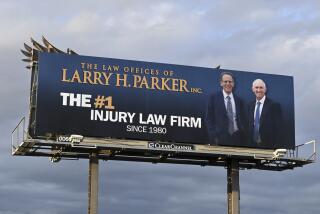Big-Time Crime: A Dirty Job, but Parker’s Gotta Do It
Some of us have missed Parker, the ultimate antihero of crime fiction who first appeared in a series of paperback original novels in the early ‘60s. A man of many names and few words, Parker isn’t an easy guy to get to know, but by means of Horatio Alger-style determination and hard work, he always manages to get ahead. Usually, he organizes heists, the bigger the better: banks, gambling casinos, military payrolls, sometimes even an entire town or two. He doesn’t like to kill innocent people unless he must, but if the job calls for it, Parker is eminently prepared to do anything to anybody. He won’t think twice about it, either.
Parker originally appeared in “The Hunter” in 1962, which a few years later was adapted into the brilliant noir Lee Marvin vehicle “Point Blank,” directed by John Boorman. In subsequent outings (such as “The Man With the Getaway Face” or “The Green Eagle Score”), the Parker books developed a cult reputation for smart entertainment and straight-faced amoral irony.
In Parker’s world, crime is big business and something you approach with clean hands and composure. The mob chieftains operate out of high-rise corporate office buildings. The hit men have pension plans and bonus clauses. And nobody is either good or bad, though some, like Parker, are more capable and professional than others.
In Parker’s world, it’s not who you are that counts so much as how much you score. And because his aims in life are pretty simple, Parker is probably the most close-lipped and emotionless character in modern fiction. When he sleeps with a woman, he never feels tenderness or commitment, but only wonders how much she’ll ask for a payoff. When he enters a building, he doesn’t care about architecture, but only notes how many ways there are in and out of every room. And when he wakes up in the morning, he reflects on nothing more profound than the weather and traffic reports. Then he eats breakfast, goes to work and steals all the money he can. If someone tries to take that money away from him, he goes and gets it back.
“Comeback” is the first book featuring Parker in more than 20 years, but once you’ve read the first few pages or so, it seems as though he’s never been gone. Brought in to help lift $400,000 worth of “love offerings” from a Midwestern arena-held appearance of William Archibald and his Christian Crusade, Parker gets mixed up in a series of betrayals and turnarounds. The crusade’s chief of security, a crew-cut former Marine named Dwayne Thorsen, decides to head a special cash-redemption program all his own. And a conscience-stricken member of the Angel Choir who sincerely wants to do God’s work accidentally sets in motion a trio of bumbling homicidal amateurs named Zack, Woody and Ralph. In Richard Stark’s universe, the second most tragic thing in the world is a saint. But the most tragic thing in the world is an amateur.
Parker isn’t a man for cell phones, laptops, ATMs or money transfers on the Net. Though the new global economy continues turning currency into an abstraction, Parker and his cronies continue digging up the cold hard cash. This is because Parker isn’t into profit and loss. He’s into control.
“What if I was the excitable type?” Thorsen asks Parker after surrendering his weapon and deciding to do what he’s told.
Parker tells him back, “I’d calm you down.”
Stark is the more hard-boiled pseudonym of popular novelist and screenwriter Donald E. Westlake, and it’s hard to imagine contemporary crime fiction without either of them. In depicting an amoral cat set loose among the amoral corporate pigeons, the Stark persona helped extend the notion of crime fiction to big business, which is where, quite frankly, it belongs. Elmore Leonard wouldn’t write what he does if Stark hadn’t been there before. And Quentin Tarantino wouldn’t write what he does without Leonard.
Yet in his latest, long overdue and aptly titled new novel, Stark isn’t content to rest on his considerable laurels. As a result, “Comeback” isn’t simply as good as the earlier ones; it is brisker, faster and funnier. This is probably because Stark is professional enough to keep learning from those very writers who have already learned from him. And, old master that he is, he does all of them one better.
More to Read
Sign up for our Book Club newsletter
Get the latest news, events and more from the Los Angeles Times Book Club, and help us get L.A. reading and talking.
You may occasionally receive promotional content from the Los Angeles Times.








